- Produce, implement and communicate a mental health at work plan that promotes good mental health of all employees and outlines the support available for those who may need it
- Develop mental health awareness among employees by making information, tools and support accessible
- Encourage open conversations about mental health and the support available when employees are struggling, during the recruitment process and at regular intervals throughout employment, offer appropriate workplace adjustments to employees who require them
-
 One in four people in the UK will have a mental health problem at some point. While mental health problems are common, most are mild, tend to be short-term and are normally successfully treated, with medication, by a GP. Mental health is about how we think, feel and behave. Anxiety and depression are the most common mental health problems. They are often a reaction to a difficult life event, such as bereavement, but can also be caused by work-related issues. In 2017, the government commissioned Lord Stevenson and Paul Farmer (Chief Executive of Mind) to independently review the role employers can play to better support individuals with mental health conditions in the workplace. The ‘Core Standards’ recommend employers of all sizes can and should put in place:
One in four people in the UK will have a mental health problem at some point. While mental health problems are common, most are mild, tend to be short-term and are normally successfully treated, with medication, by a GP. Mental health is about how we think, feel and behave. Anxiety and depression are the most common mental health problems. They are often a reaction to a difficult life event, such as bereavement, but can also be caused by work-related issues. In 2017, the government commissioned Lord Stevenson and Paul Farmer (Chief Executive of Mind) to independently review the role employers can play to better support individuals with mental health conditions in the workplace. The ‘Core Standards’ recommend employers of all sizes can and should put in place: -
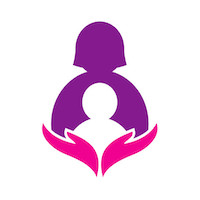 We have an obligation to undertake an Individual Risk Assessment for any individuals with additional needs who work for us or attend our facilities. Our FREE template and guidance notes will enable you to sit down with the individual, or their parent/carer, and undertake a Risk Assessment to assist in providing the most appropriate care.
We have an obligation to undertake an Individual Risk Assessment for any individuals with additional needs who work for us or attend our facilities. Our FREE template and guidance notes will enable you to sit down with the individual, or their parent/carer, and undertake a Risk Assessment to assist in providing the most appropriate care. -
 In order to ensure that new and expectant mothers in early years provision and schools can work without unacceptable risks to their health and safety, employers must be aware of:
In order to ensure that new and expectant mothers in early years provision and schools can work without unacceptable risks to their health and safety, employers must be aware of:- any female workers who may be of child-bearing age
- the effects of the physiological, hormonal and psychological changes that occur during pregnancy and the postnatal nursing period
- any work activities, or aspects of the workplace, which may pose a particular risk to new and expectant mothers.
-
 Current legislation, The Regulatory Reform (Fire Safety) Order 2005, applies to all workplaces regardless of the number of employees and requires employers to provide adequate training in fire awareness for all staff members. Our Online Fire Extinguisher training course aims to give all employees a basic introduction to identifying the different types of extinguisher available, determining which is the best extinguisher for the fire and the protocol of extinguishing a fire. This Fire Extinguisher E-Learning Course provides training in the use of different fire extinguishers and the protocol of tackling a fire. It is a cost-effective way for employers to fulfil their legal obligation to provide their employees with the necessary understanding of fire extinguishers. Candidates can progress through the modules at their own pace and in their own time to fit the training in around their work and personal life. The Online Fire Extinguisher E-Learning course is approved by leading industry bodies: The Institute of Hospitality, IIRSM, Gatehouse Awards & CPD.
Current legislation, The Regulatory Reform (Fire Safety) Order 2005, applies to all workplaces regardless of the number of employees and requires employers to provide adequate training in fire awareness for all staff members. Our Online Fire Extinguisher training course aims to give all employees a basic introduction to identifying the different types of extinguisher available, determining which is the best extinguisher for the fire and the protocol of extinguishing a fire. This Fire Extinguisher E-Learning Course provides training in the use of different fire extinguishers and the protocol of tackling a fire. It is a cost-effective way for employers to fulfil their legal obligation to provide their employees with the necessary understanding of fire extinguishers. Candidates can progress through the modules at their own pace and in their own time to fit the training in around their work and personal life. The Online Fire Extinguisher E-Learning course is approved by leading industry bodies: The Institute of Hospitality, IIRSM, Gatehouse Awards & CPD.Fire Extinguisher Modules
Fire Extinguishers Pre-Engagement Action Using a Fire Extinguisher Approved by Institute of Hospitality, IIRSM, Gatehouse Awards & CPD – Duration 25 mins* -
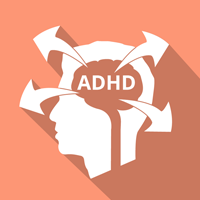 ADHD is a chronic condition that creates a range of persistent symptoms such as difficulty sustaining attention, hyperactivity and impulsive behaviour. The course covers the definitions of ADHD, the different types of ADHD and how to recognise some key signs and symptoms. Beyond this the course will look at some of the possible causes of ADHD, how it is diagnosed and how it can be treated, including environmental changes, types of therapy and medication that can be prescribed. Approved by CPD – Duration 45 mins*
ADHD is a chronic condition that creates a range of persistent symptoms such as difficulty sustaining attention, hyperactivity and impulsive behaviour. The course covers the definitions of ADHD, the different types of ADHD and how to recognise some key signs and symptoms. Beyond this the course will look at some of the possible causes of ADHD, how it is diagnosed and how it can be treated, including environmental changes, types of therapy and medication that can be prescribed. Approved by CPD – Duration 45 mins* -
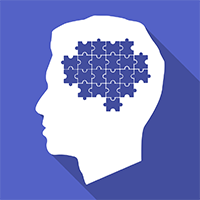 This course will provide you with an understanding of what autism is and how it affects a child’s daily life. It will touch on what factors contribute towards a child developing autism as well as some of the typical behaviours associated with it and how to can provide effective support for those with the condition. It also discusses what happens during the diagnosis process, some of the intervention methods that can help manage the condition and suggests some simple adaptations you can make to improve a child with autism’s day to day life. Approved by CPD – Duration 30 mins*
This course will provide you with an understanding of what autism is and how it affects a child’s daily life. It will touch on what factors contribute towards a child developing autism as well as some of the typical behaviours associated with it and how to can provide effective support for those with the condition. It also discusses what happens during the diagnosis process, some of the intervention methods that can help manage the condition and suggests some simple adaptations you can make to improve a child with autism’s day to day life. Approved by CPD – Duration 30 mins* -
 Diabetes is a serious lifelong health condition that occurs when the amount of glucose, or sugar, in the blood is too high. If left untreated, high blood glucose levels can cause serious health complications. This course is aimed at people working in the health and social care sector and will provide an overview of the condition, the common symptoms that might indicate someone has diabetes, methods of diagnosis, some possible treatments and common complications that can affect those with the condition. Approved by CPD – Duration 45 mins*
Diabetes is a serious lifelong health condition that occurs when the amount of glucose, or sugar, in the blood is too high. If left untreated, high blood glucose levels can cause serious health complications. This course is aimed at people working in the health and social care sector and will provide an overview of the condition, the common symptoms that might indicate someone has diabetes, methods of diagnosis, some possible treatments and common complications that can affect those with the condition. Approved by CPD – Duration 45 mins* -
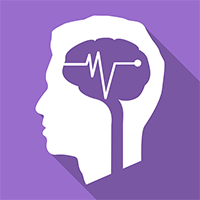 This course will give you an overview of epilepsy. It lists the methods of diagnosis, what a seizure is and how the brain can be affected. It will introduce some possible seizure triggers and describe what to do when someone has a seizure. It will also discuss some of the treatments offered to people with epilepsy and provide practical advice on what you can do if you witness someone having a seizure. Approved by CPD – Duration 30 mins*
This course will give you an overview of epilepsy. It lists the methods of diagnosis, what a seizure is and how the brain can be affected. It will introduce some possible seizure triggers and describe what to do when someone has a seizure. It will also discuss some of the treatments offered to people with epilepsy and provide practical advice on what you can do if you witness someone having a seizure. Approved by CPD – Duration 30 mins* -
 This course aims to provide a gentle introduction to the expectations of the Early Years Foundation Stage and it can also act as a refresher for those wanting to update their knowledge. It will introduce you to some of the key documents and legislation that relate to Early Years providers, the process for registering with Ofsted and the various policies and procedures that need to be in place. It also covers learning and development requirements, how to observe and assess the progress of children in your care and the safeguarding and welfare requirements laid out in the EYFS Framework. Approved by CPD – Duration 60 mins*
This course aims to provide a gentle introduction to the expectations of the Early Years Foundation Stage and it can also act as a refresher for those wanting to update their knowledge. It will introduce you to some of the key documents and legislation that relate to Early Years providers, the process for registering with Ofsted and the various policies and procedures that need to be in place. It also covers learning and development requirements, how to observe and assess the progress of children in your care and the safeguarding and welfare requirements laid out in the EYFS Framework. Approved by CPD – Duration 60 mins* -
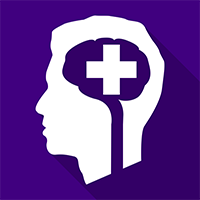 This course explains the difference between mental health and mental illness. It covers the symptoms of a number of the most common mental illnesses so you will know what to look out for or what to expect if you are working with someone with one of these conditions. As well as providing some practical advice on how you can work effectively with those affected by these conditions.
This course explains the difference between mental health and mental illness. It covers the symptoms of a number of the most common mental illnesses so you will know what to look out for or what to expect if you are working with someone with one of these conditions. As well as providing some practical advice on how you can work effectively with those affected by these conditions.Mental Health Awareness Course Modules
What is mental illness and prevalence rates Symptoms of Bi-Polar, depression, psychotic disorders and schizophrenia Symptoms of anxiety, personality disorder, self-harming Approved by CPD – Duration 25 mins* -

Working Together to Safeguard Children (2018) requires all providers working with children, young people and vulnerable adults to have a Safeguarding Policy in place.
Click below to purchase your Safeguarding Policy.
Following purchase please follow the link in your confirmation email and complete the Questionnaire. Your Safeguarding Policy will be emailed to you within 15mins of submitting the Questionnaire.

